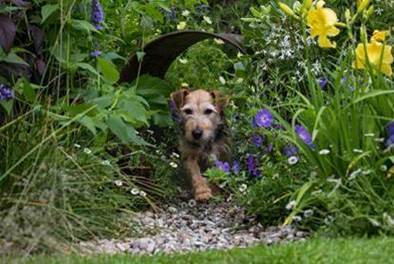Bonfire Night may be a couple of months away, but PDSA, the vet charity for pets in need, is urging pet owners to take action now to prepare for fireworks season.
Many of our pets’ senses are far more sensitive than ours, so loud noises and bright flashes can be overwhelming, making fireworks season a traumatic and anxious time for many of our furry friends. In fact, the 2022 PDSA Animal Wellbeing (PAW) Report revealed that 41 per cent of dog owners and 30 per cent of cat owners said their pets were afraid of fireworks*.
PDSA Vet Nurse Nina Downing said: “In 2021, in our 48 Pet Hospitals across the country we saw 1,200 animals with firework related issues such as phobias and injuries, highlighting the real impact on our furry friends. November can be an especially scary period for our pets because of this, but taking the time to prepare them for our celebrations can make a huge difference. Luckily, there are some simple steps you can take now to help four-legged family members feel better when November rolls around.
Start early
“Talk to your vet if you know your pet becomes distressed with fireworks – they may be able to prescribe medication to help. Now is also the time to start desensitising pets to the sounds that come with Bonfire Night – the earlier you start, ideally at least six weeks ahead, the less likely they are to have a negative association with them. Play firework noises quietly throughout the house and reward your pet with praise and a healthy treat when they remain calm. Gradually increase the noise but stop immediately if they begin to show any signs of distress – try again at a lower volume once they feel at ease. It’s important to go at your pet’s pace – remember some animals may have a lower tolerance to loud noises than others.
Use music and pheromones
“Music can be really helpful to drown out the sound of bangs, but if your pet isn’t used to the tunes, that could be a surprise in itself. Use your own playlist or try one we’ve created and play it around the house in the lead up to Bonfire Night, then when you need the music to mask the noise, your pet should be used to it. Remember that plug-in pheromone diffusers can also help to relax your pet – these need to be set up well in advance of Bonfire Night for full effect.
Keep them safe
“Make sure dogs have been to the toilet and cats are indoors well before dark – start giving them their dinner a bit earlier now so they know what time to come home. Remember, cats will need litter trays, so they can stay safely indoors. Frightened pets can go into fight or flight mode and may try to escape when they hear loud bangs, so make sure windows, doors, cat flaps or doggy doors are secure so that your pet stays safely inside. Check for any small holes or gaps in fence panels that your pet may be able to squeeze through in a panic if the worst happens and they escape from the house, and make sure your microchip details are up to date!
Set up a retreat
“Creating a space where your pet feels safe and secure will give them somewhere to go if they feel anxious. Setting this up as soon as possible will give your four-legged friend time to get familiar with the space ahead of any fireworks. Choose a quiet room where they feel comfortable. Create a ‘den’ they can retreat into that has thick blankets, bedding and pillows which can help muffle the sound of loud bangs, cats may prefer these up on high shelves. Their favourite toys may also help take their mind off the noise.
Plan ahead
“Writing the dates and times of any local displays in your calendar or setting a reminder on your phone means you can plan to be home to provide reassurance. Knowing what’s on in advance also allows you to ensure your pet is safely indoors before fireworks begin, and gives you plenty of time to prepare their safe space.”
For more advice on how to prepare for Bonfire Night with your pets, please visit https://www.pdsa.org.uk/fireworksready




